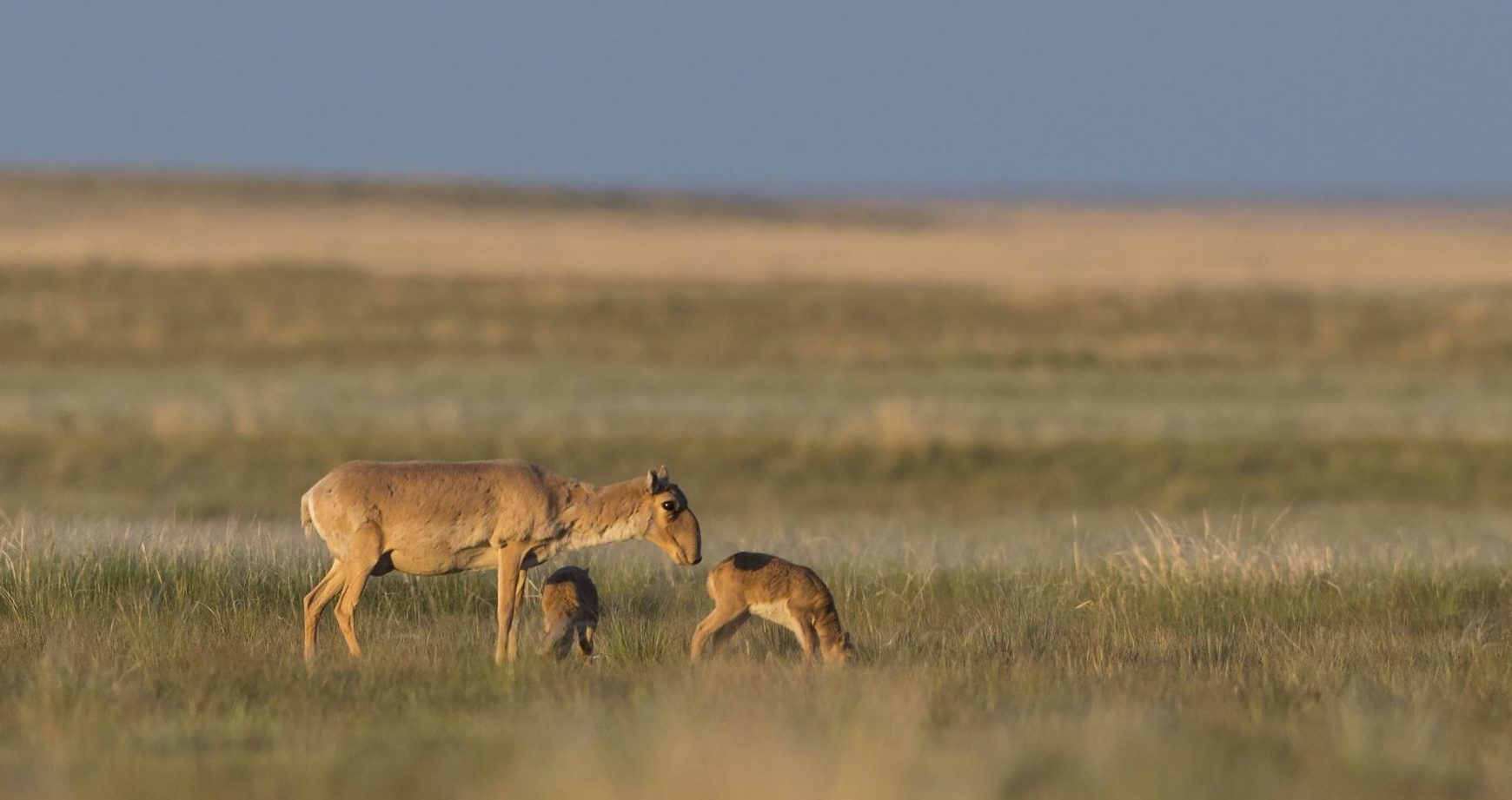
Two grantees selected as prestigious UN Global Flagships for Ecosystem Restoration
Initiatives by two SRT grantees, the Association for the Conservation of Biodiversity of Kazakhstan (ACBK) and CAMP Alatoo, have been recognised as UN World Restoration Flagships. They are two of only 10 Flagships selected worldwide through a rigorous and competitive process. The UN’s Flagships, chosen as part of the UN Decade on Ecosystem Restoration and announced at the December 2022 UN Biodiversity Conference in Montreal, are the first, best, or most promising examples of largescale and long-term ecosystem restoration in any country or region.
Kazakhstan hosts some of the world’s most under-protected biomes, including temperate grasslands and winter deserts, which support a rich variety of threatened wildlife. It is also home to over 97% of the world’s population of critically endangered saiga antelope, a species vital for the survival of steppe grasslands. ACBK are leading the Altyn Dala Conservation Initiative in Kazakhstan – an international partnership also comprising the Kazakh government, Fauna and Flora International, Frankfurt Zoological Society and the Royal Society for the Protection of Birds. Spanning over 750,000km2 this long-term initiative seeks to preserve Kazakhstan’s immense grassland landscapes, ultimately re-establishing fully functional ecosystems. ACBK and its partners are undertaking joint activities including monitoring priority ecosystems, establishing and monitoring protected areas and ecological corridors, public education and outreach, and staff training. This holistic approach supports the Kazakh governmental program for saiga protection and ranger teams from the “Okhotzooprom” State Enterprise. It is seeing success, with more than 5 million hectares of new protected areas operational, and the population of saiga antelope – their flagship and key indicator species – having recovered from the brink of extinction at less than 50,000 in 2005 (when the initiative began) to over 1,300,000 in 2022.
CAMP Alatoo’s work on community involvement in the management of protected areas at the “Baiboosun” and “Jargylchak” reserves in Kyrgyzstan has also been selected as a Flagship. At Baiboosun, inhabitants of three mountain villages had become deeply concerned by the decrease in wildlife and by illegal collection of plants. In 2019, CAMP Alatoo supported the villagers in their initiative to create a nature protection zone, the Baiboosun microreserve, covering about 140 km². At Jargylchak, a 230 km2 protected area was already designated but delivering limited protection on the ground. In 2021, CAMP Alatoo set up a community association to co-manage the site with government, and new conservation activities, scientific research, environmental education and livelihoods initiatives are underway.

‘Baiboosun microreserve’, Kyrgyzstan © Luciano Foglia
These two models of community-led management and community co-management are bearing fruit. Over 370 km2 of important habitat is better protected, over 1,750km2 of pasture-land around the reserves is under better management, and species like the vulnerable snow leopard are slowly coming back. At Baiboosun, four adults were recorded and two kittens were born each year in 2019 and 2021. It is suspected that the increased protection has reduced grazing pressure by livestock and has turned the area into a refuge for both the snow leopard and its prey. The presence of 17 other mammal species from the Red Book of Kyrgyzstan[1], such as Pallas’ cat, Eurasian lynx, and Siberian ibex has also been confirmed.
A snow leopard captured on the camera trap in the Baiboosun microreserve © CAMP Alatoo
The reserve models empower communities to conserve and protect nature. Baiboosun and Jargylchak have established models that can be replicated elsewhere, supporting local people to safeguard nature and improve their own livelihoods.
The UN Decade on Ecosystem Restoration 2021-2030 was launched on World Environment Day, 5 June 2021. Describing itself as a ‘rallying call for the protection and revival of ecosystems’, it aims to ‘prevent, halt and reverse the degradation of ecosystems on every continent and in every ocean’. The UN notes that; “Ecosystems support all life on Earth. The healthier our ecosystems are, the healthier the planet – and its people… [The UN Decade on Ecosystem Restoration] can help to end poverty, combat climate change and prevent a mass extinction.”
[1] Red Book of Kyrgyzstan refers to the Red Book of Endangered Species of Kyrgyzstan and based off the International Union for Conservation of Nature’s Red List of Threatened Species
Return to grantee stories
